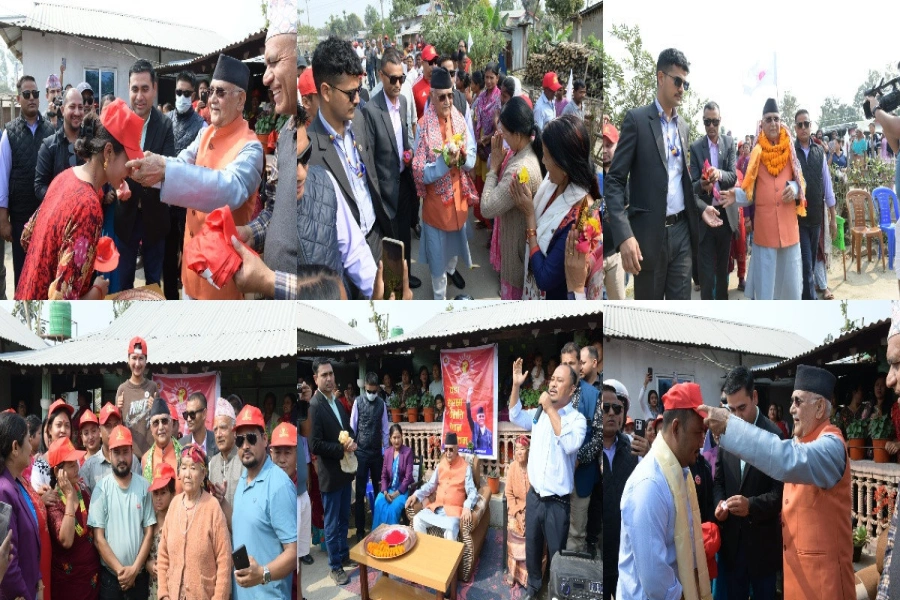Exams like SEE should be meant for graduating and sending-off our young ones to explore their future rather than finding a reason to hold them back
The Secondary Education Examination (SEE) started in the country a few days ago and this year close to 500,000 young students are taking this exam. I can only imagine the sleepless nights these students continue to procure and equally awake parents—been there, done that.
Also known as the ‘iron gate,’ SEE is considered the most important exam that a student will ever take during his/her academic life. As a young student taking this exam over 14 years ago, I thought that this would be the most important exam that I would take and that my life would not be the same after this exam. To a certain extent, SEE—then called SLC—did change my life. Had I not done well in this exam, perhaps all the opportunities that I received might not have materialized. But thinking back as an adult now, I think a lot of unnecessary pressure was added to 15/16-year-olds who do not know what they want in their life.
They do not know anything about what lies ahead of them but are forced to act as if they have it all figured out. Even worse is when SEE is over the bridge courses and all kinds of extra coaching start to prepare these kids to dive right into the academic pressure cooker. Instead, we could be teaching our students to take a gap year, do some volunteering work, give back to the society, embrace a hobby and figure out what they want to do next.
SEE results improve this year with over 61 percent examinees gr...

Education vs learning
There is a huge difference between education and learning. A child might be enrolled in a school, but it does not necessarily ensure learning. According to Program for International Student Assessment (PISA), Nepali students’ achievement is significantly below average, especially in reading, writing and problem-solving skills. Our education ranks below average when compared to the international level in almost all aspects. Do we remember the last time we taught something in our school that had nothing to do with passing mid-terms or finals?
As a student, how often have you been curious to learn something new without thinking that you need to learn it because you will be asked in the exam? Apart from a few, most of our academic plan revolves around students being forced-fed the concepts and ideas, which they must regurge in the exam. The best student will be able to remember all the formulas, quote word-for-word what the teacher had taught and write exactly as the teachers did in the class. Where is the student’s opinion? How did the student think of what they have learnt? It does not matter if the students understood what it meant or can paraphrase in their own word, but if they have managed to memorize definitions and write it down in the exam, we consider them brilliant. Fourteen years later, I still remember the definition of ‘thermodynamics.’ Not because I understood what it meant, but because I had learnt it by heart so much that it is so unsettling that I still remember the definition.
Teaching creativity
The important exams like SEE should be meant for graduating and sending-off our young ones to explore their future rather than finding a reason to hold them back by failing. The teachers should grade based on how much of the idea the student has understood rather than how perfectly they quoted the book. Therefore, oral-exams should be employed in as many subjects as possible.
Students should be allowed to bring in a cheat sheet to exam halls. It might be hard to digest in our academic setting because exams mean no books or notes and if you are found cheating, you get kicked out. But, if we are going to examine the students on their understanding of the concepts that was taught throughout the years and not on their ability to memorize, the questions should be designed in such a way that it tests their understanding, not memory.
If we apply this method, students should be allowed to bring a cheat sheet with formulas, concepts and examples of how a problem is solved and apply it to the problems that are given in the questions. Another benefit of this is that students will spend a lot more time preparing the cheat sheet that they would probably end up learning more while going through the book and writing down all the ideas. Unfortunately, our examination system is primarily based on testing students on their memorization capacity rather then their understanding, thus, the concept of cheat sheets sounds absurd.
Nelson Mandela once said: “Education is the most powerful weapon which you can use to change the world.” If we want our children to change the world, we might need to start by changing how to educate them.
The author is a Rotary Peace Fellow studying international development policy at Sanford School, Duke University






































